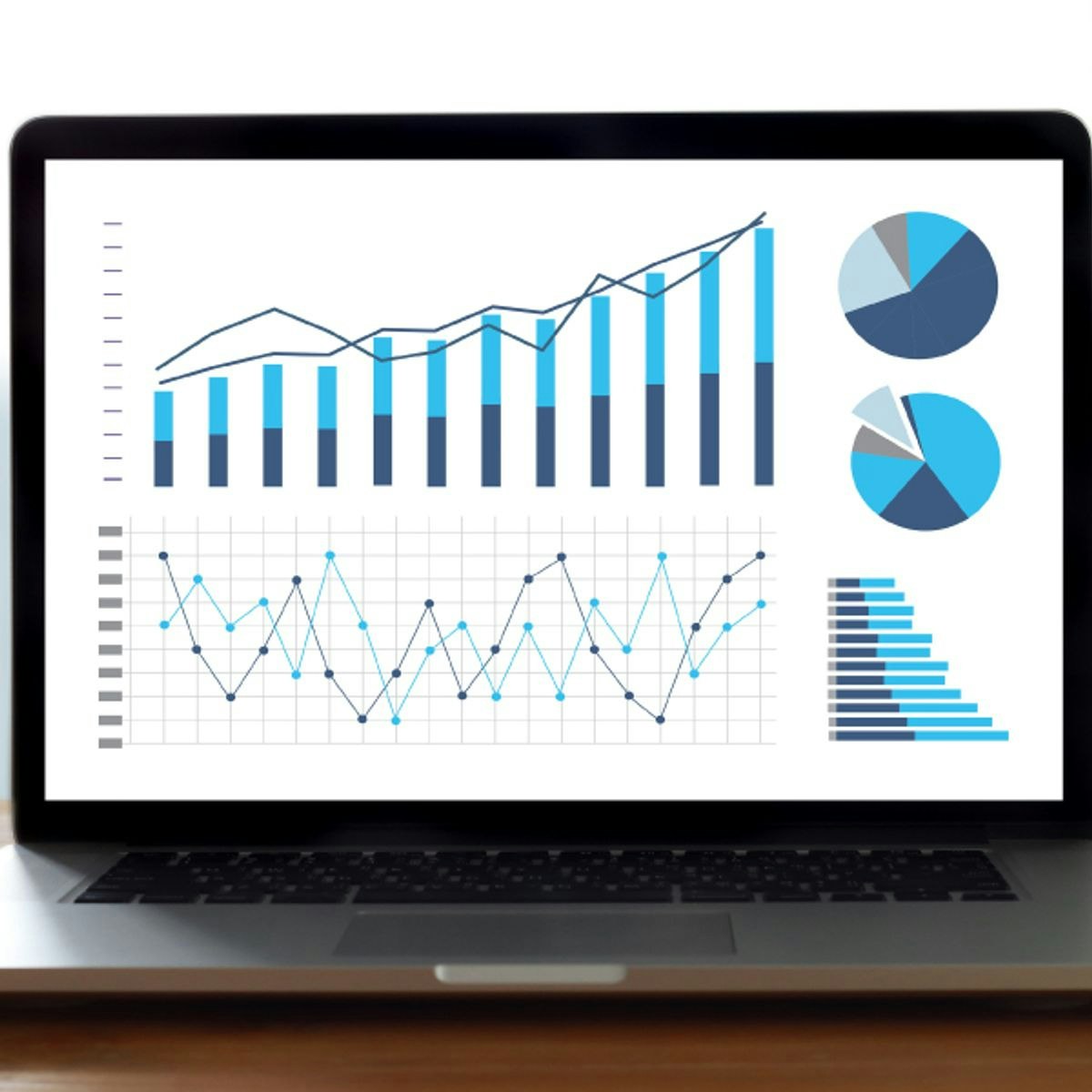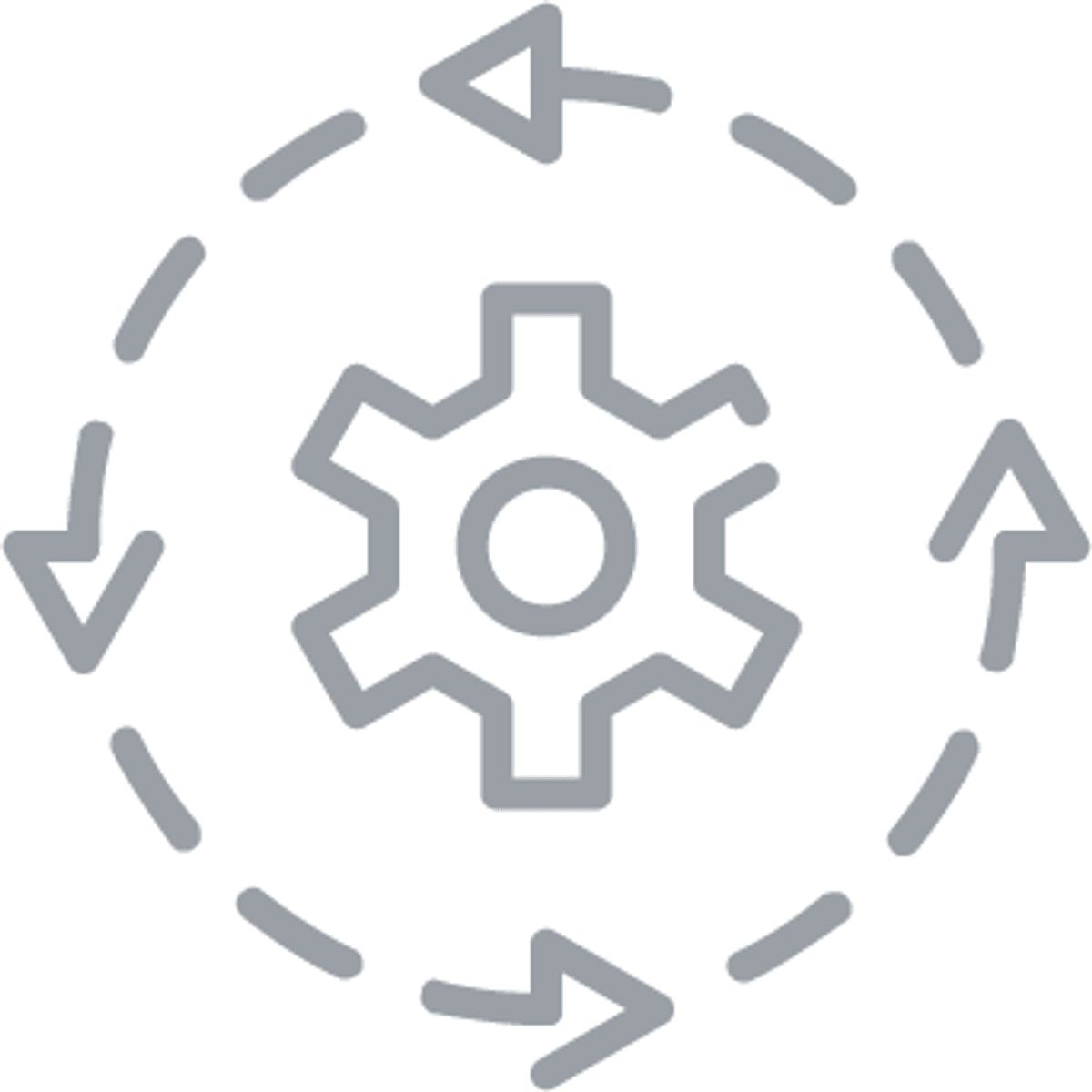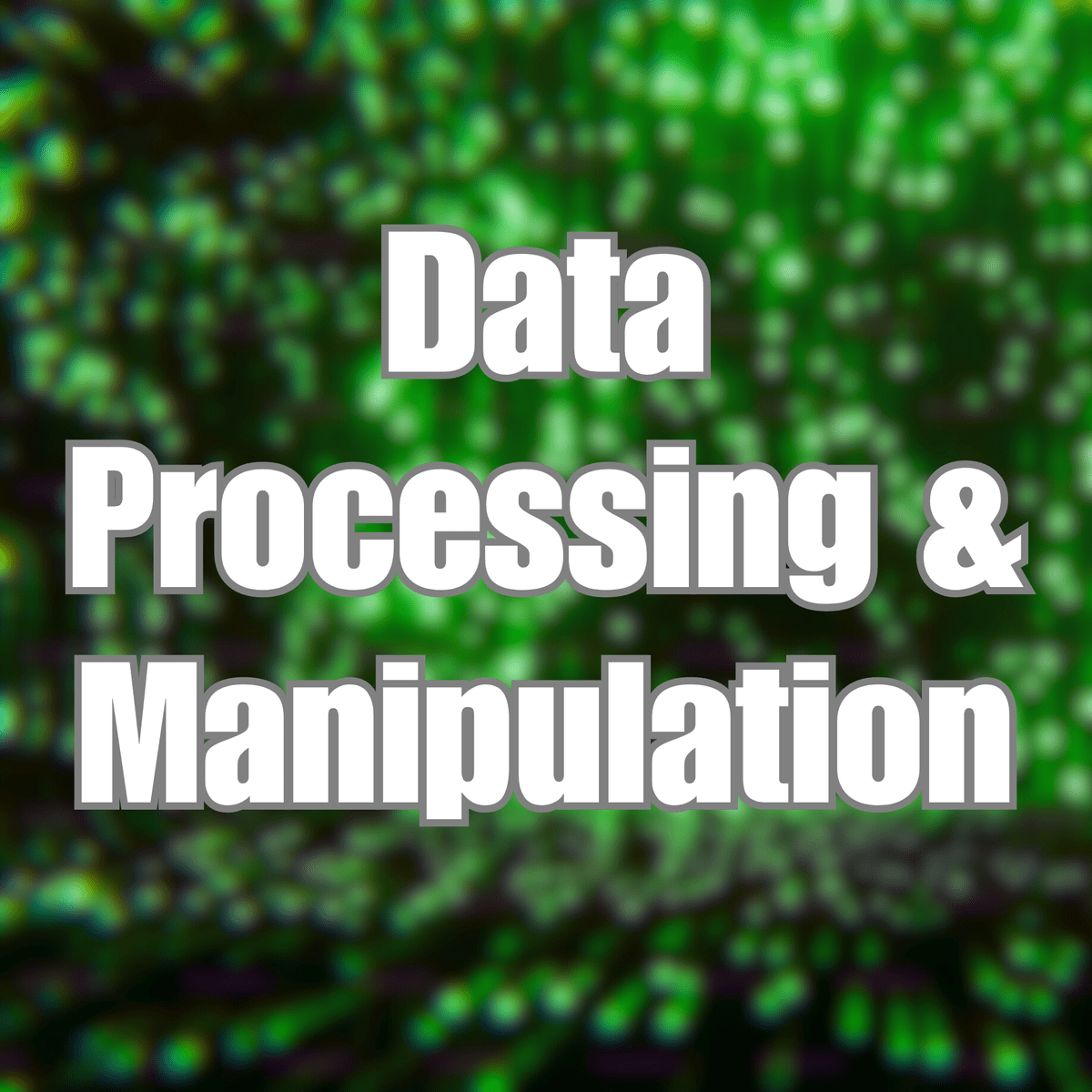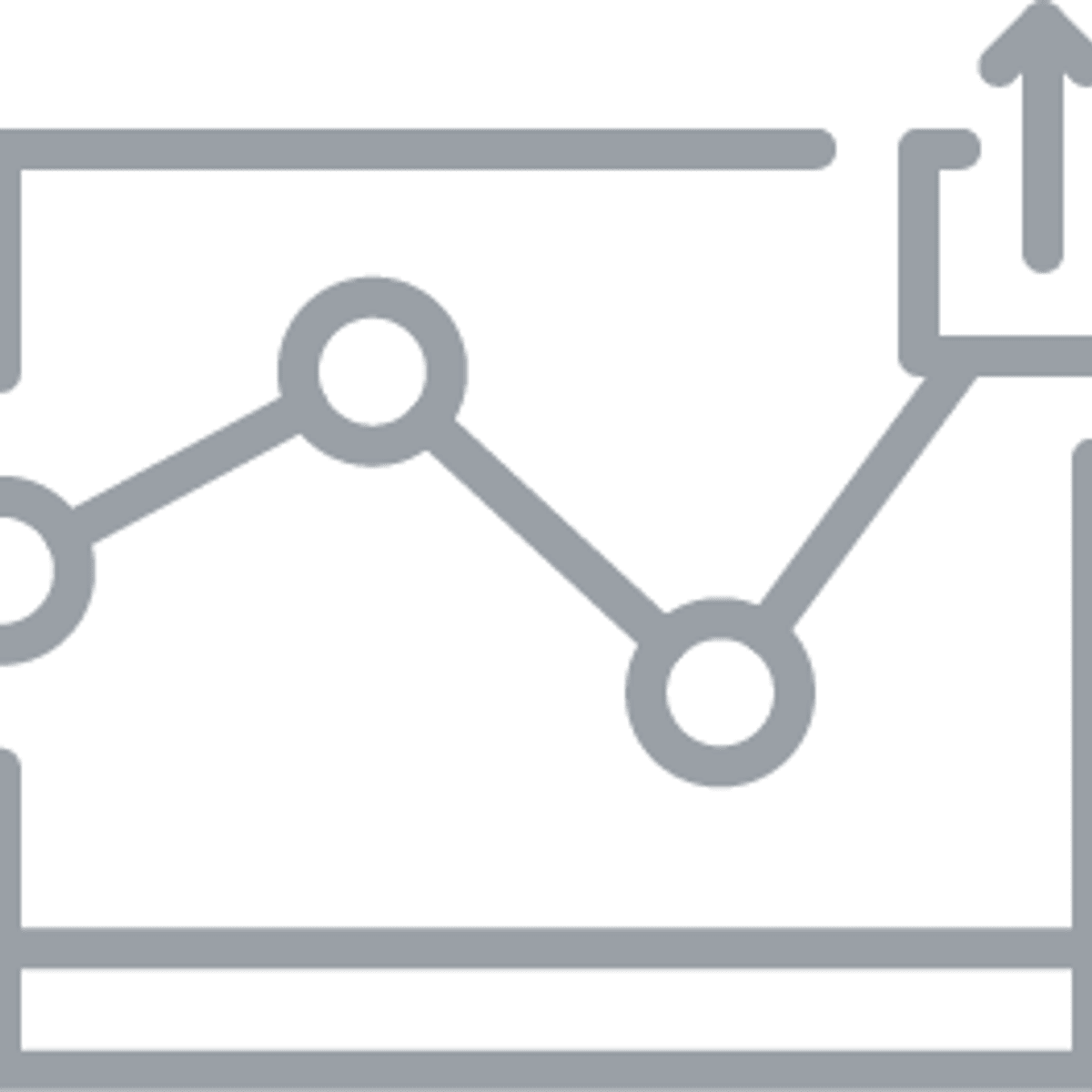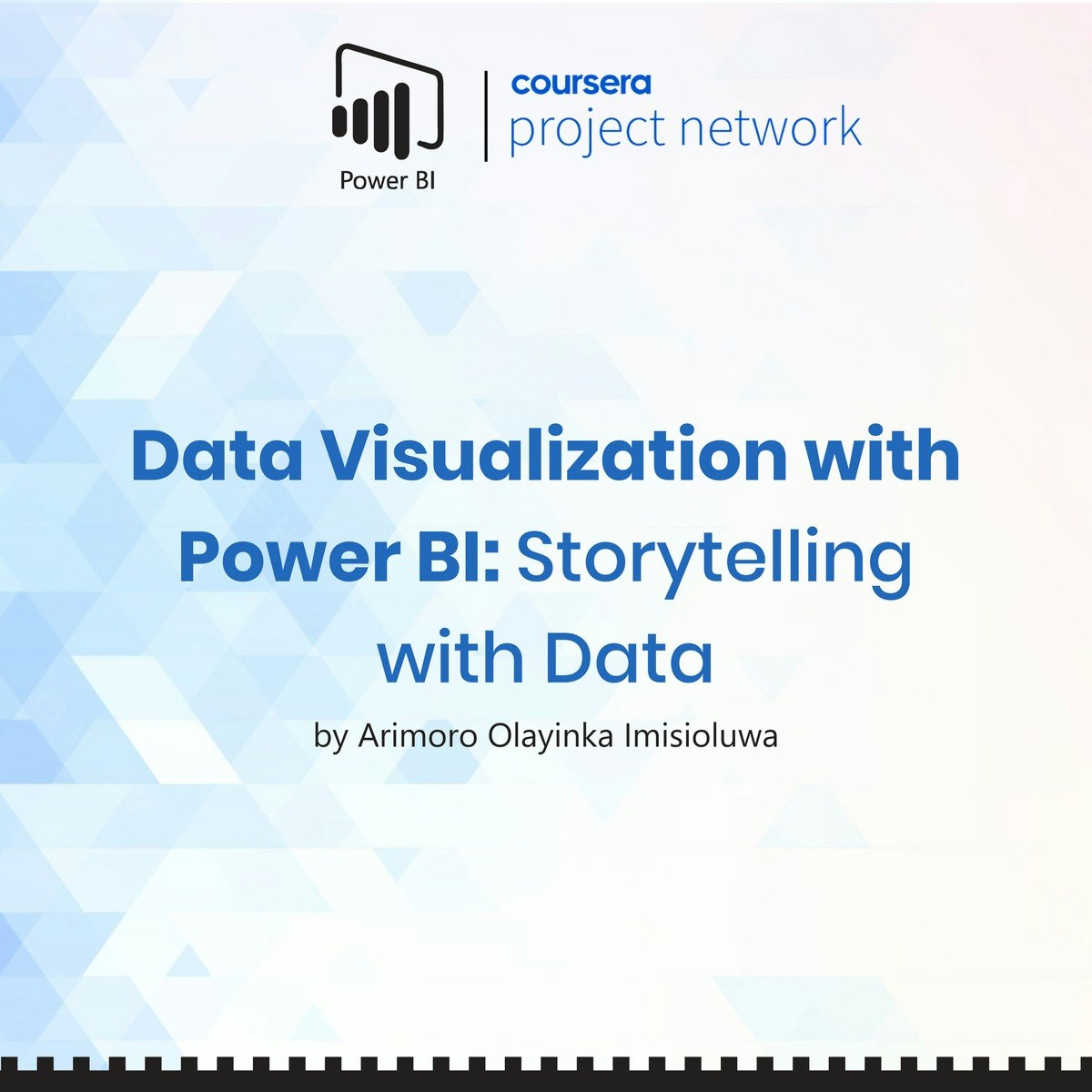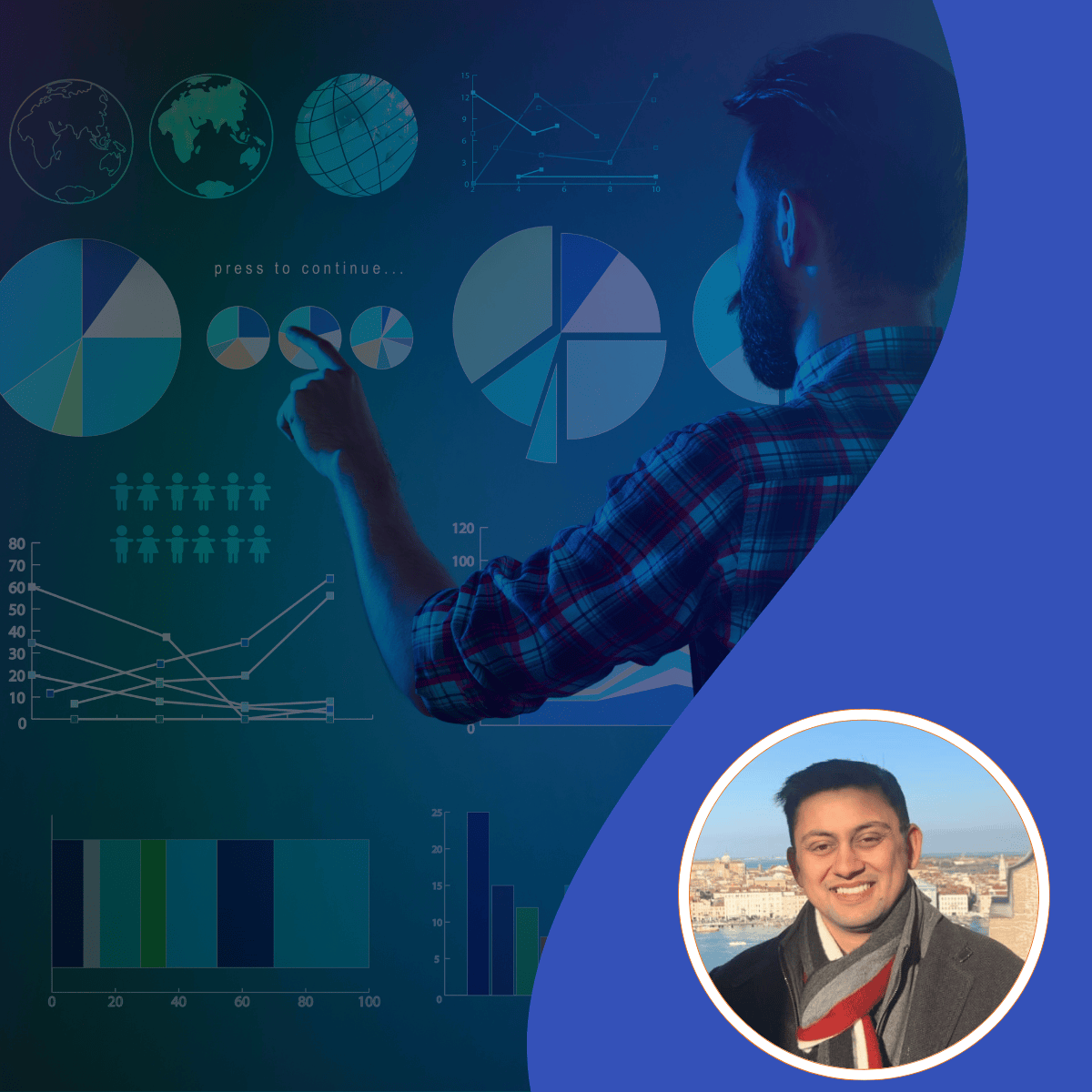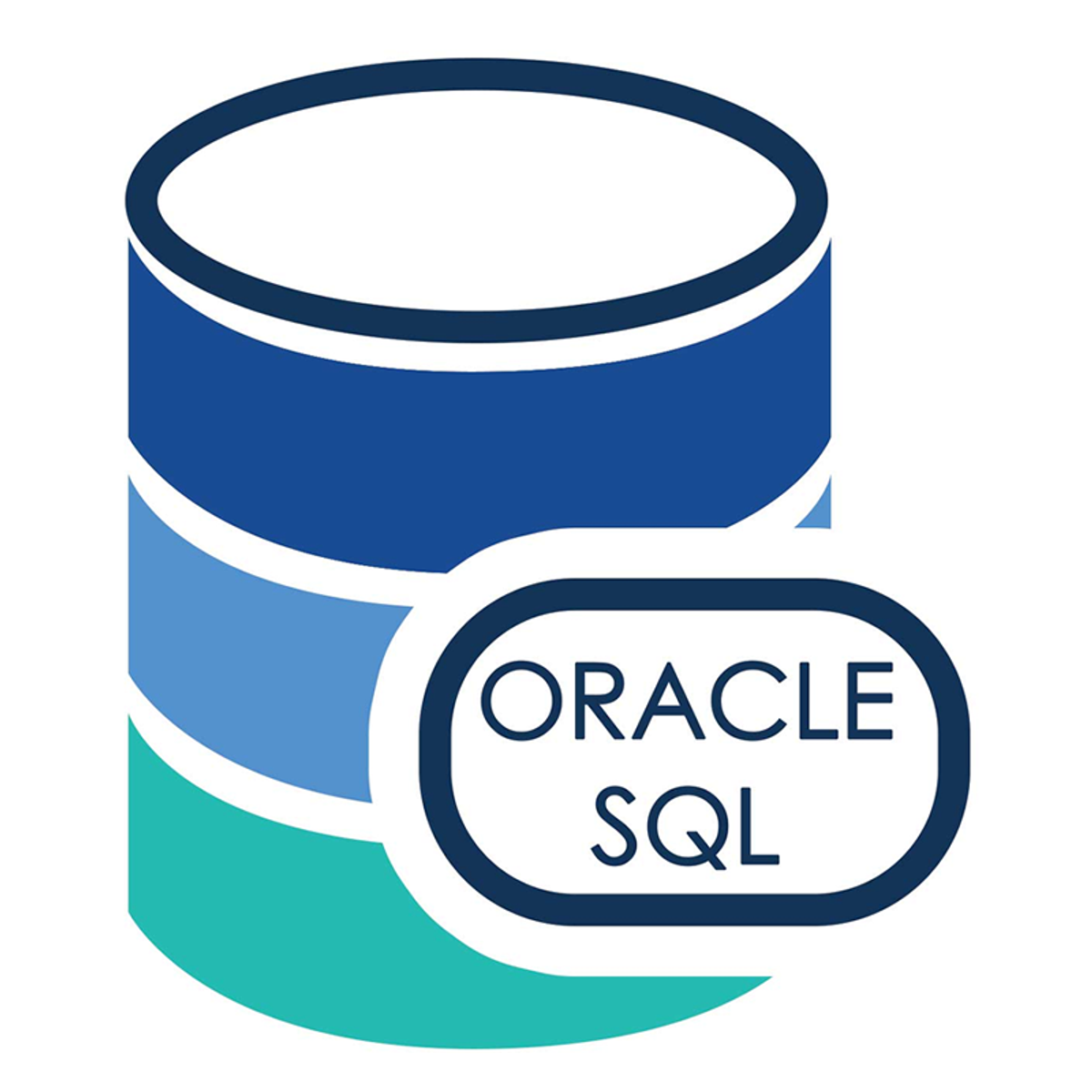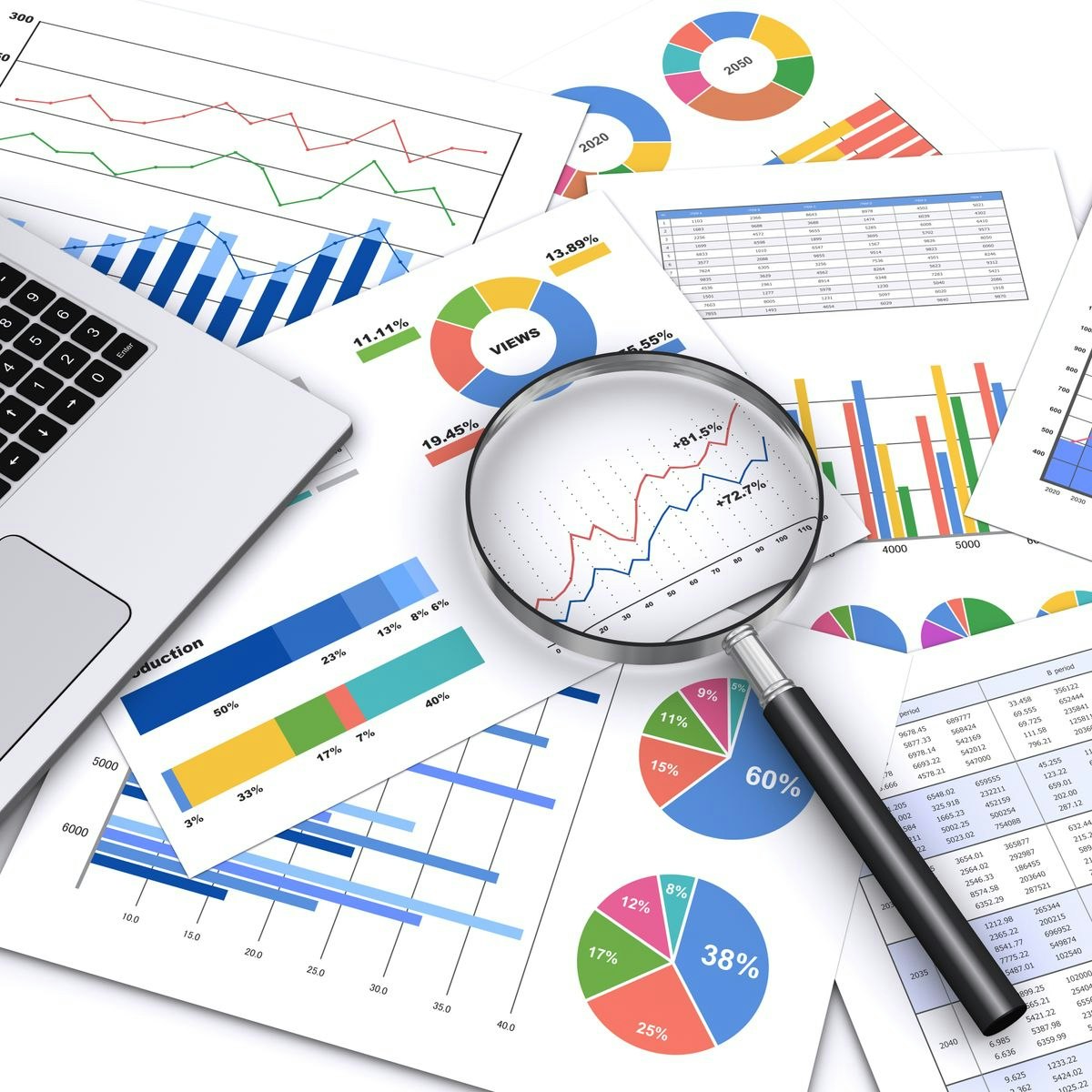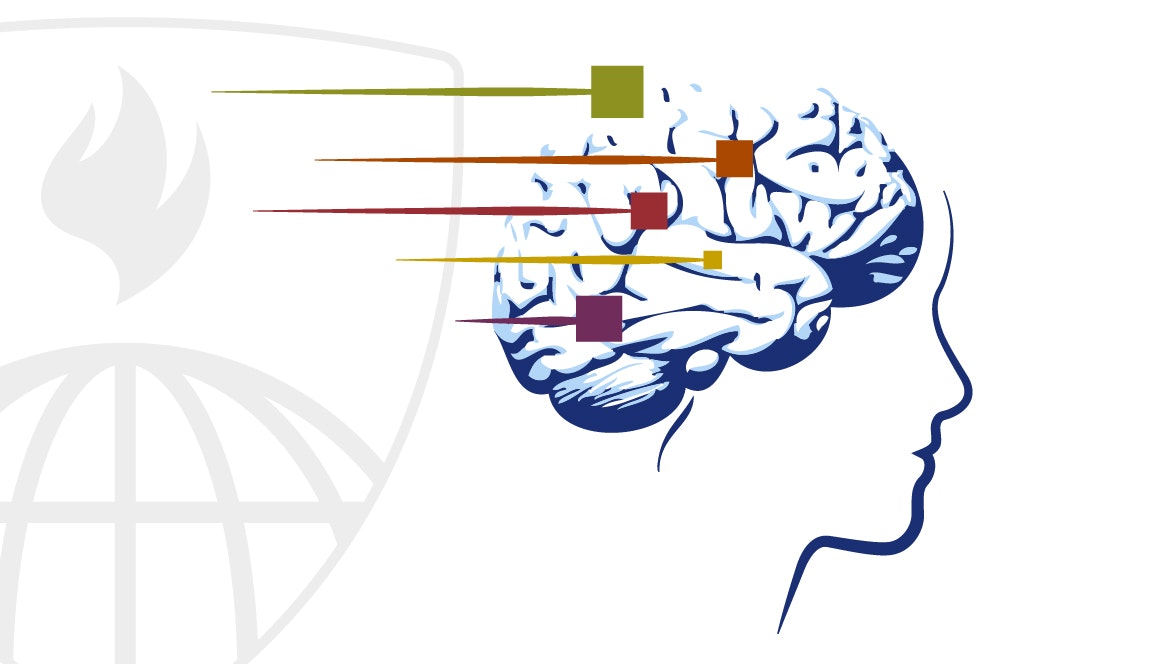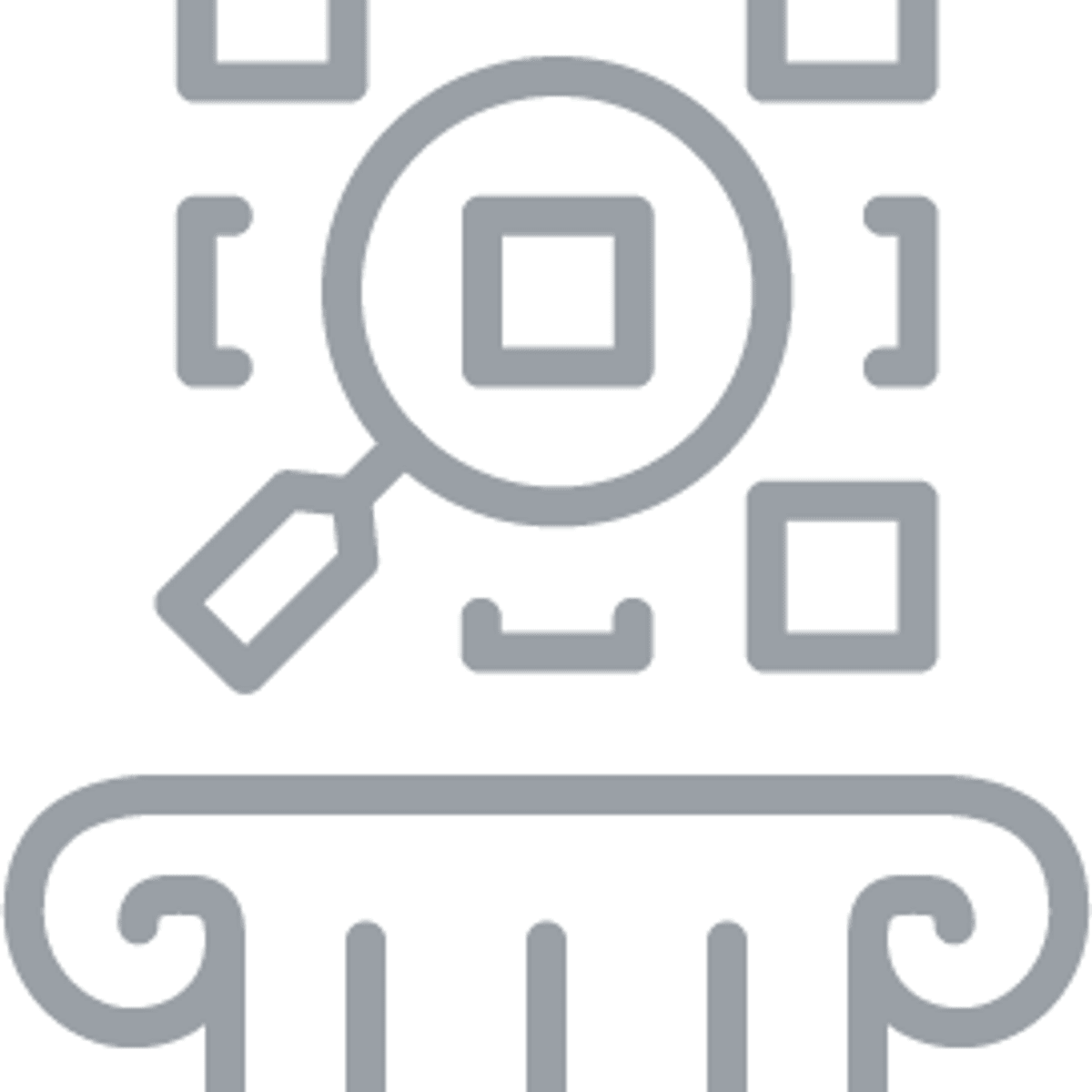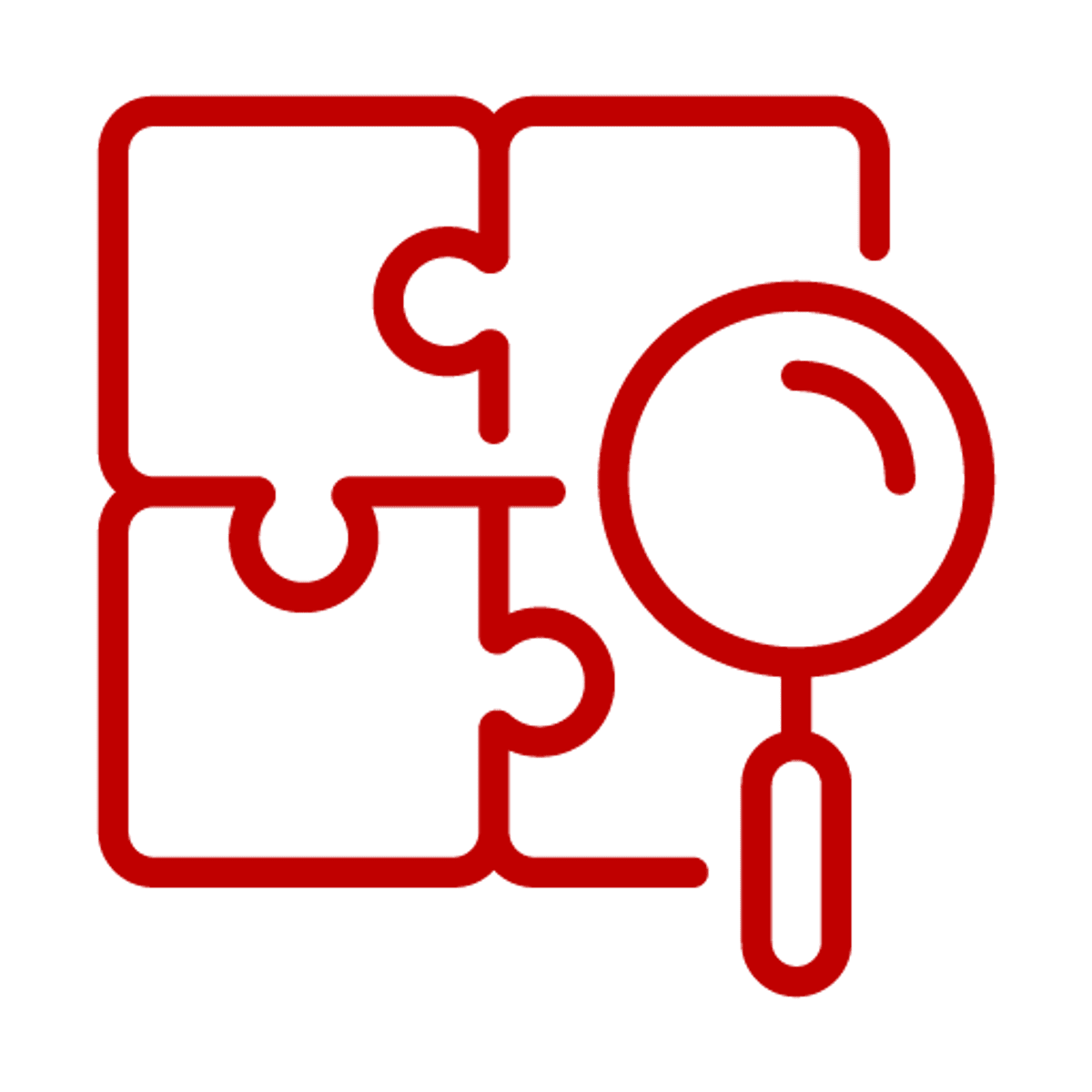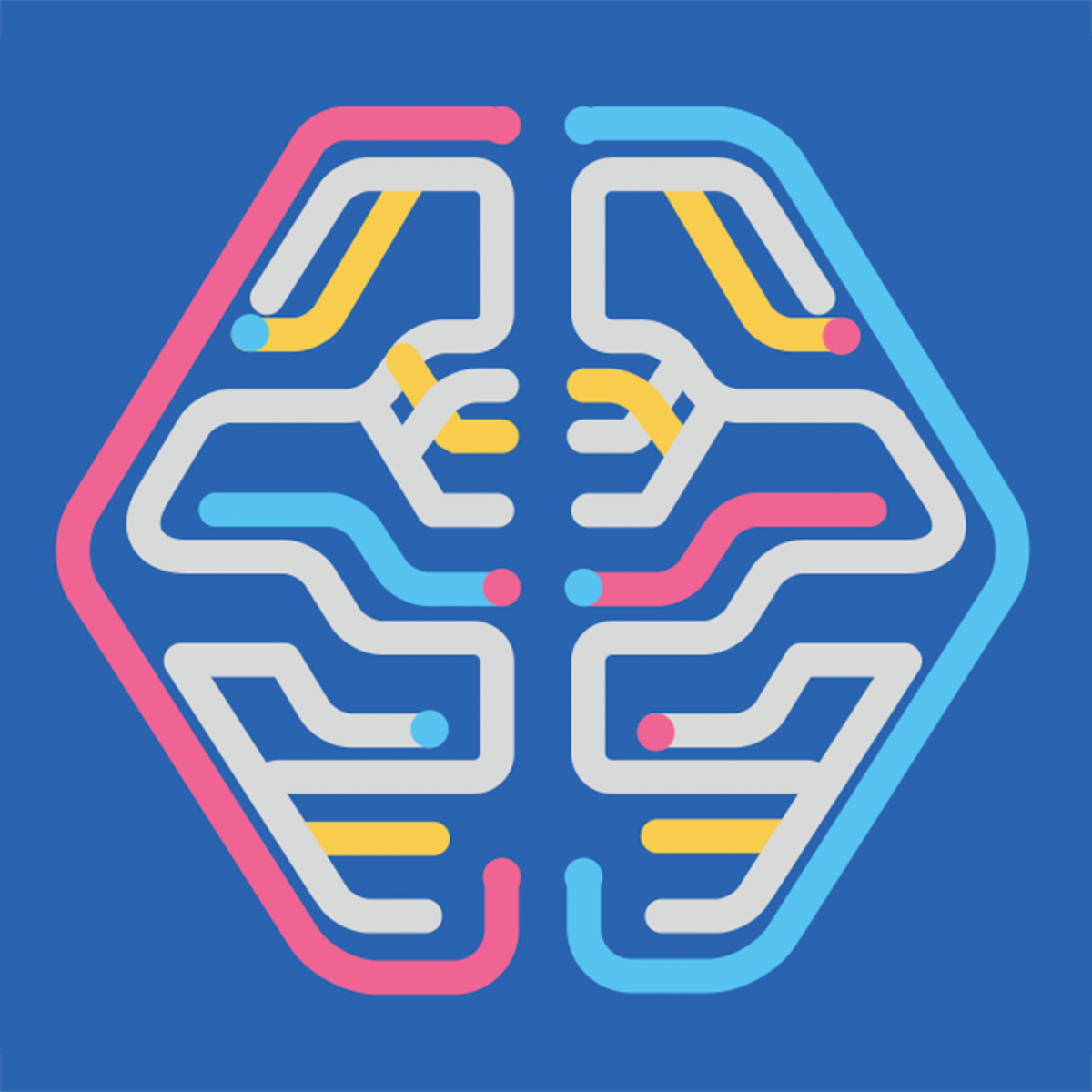Statistician
Data Analyst: A Career Guide
Data Analysts play a crucial role in today's data-driven world. They are the detectives of the digital age, sifting through vast amounts of information to uncover hidden patterns, trends, and insights. At its core, the role involves collecting, cleaning, analyzing, and interpreting data to help organizations make better decisions. Whether it's optimizing marketing campaigns, improving product design, or streamlining operations, data analysts provide the factual foundation for strategic choices.
Working as a Data Analyst can be incredibly engaging. You get to solve complex puzzles using data, turning raw numbers into compelling stories that drive action. The thrill of discovering a key insight that changes a company's direction or significantly improves performance is a major draw. Furthermore, the field is constantly evolving with new tools and techniques, offering continuous learning opportunities for those with a curious mind.
What is a Data Analyst?
Defining the Role and Its Scope
A Data Analyst is a professional who gathers, processes, and performs statistical analyses on large datasets. They translate numbers and data into plain English to help organizations understand how to make better business decisions. Their work forms a bridge between raw data and actionable intelligence, transforming complex information into understandable narratives.
The scope of a data analyst's work typically spans the entire data lifecycle. This includes identifying data sources, assisting data engineers with collection processes, cleaning and preparing data for analysis, performing exploratory data analysis, applying statistical methods, visualizing findings, and communicating results to stakeholders. They focus on understanding past performance and current trends to inform present strategies.
Think of data as raw ingredients like flour, eggs, and sugar. A data analyst is like a baker who takes these ingredients, measures them carefully (cleans the data), mixes them according to a recipe (performs analysis), bakes a cake (creates reports/visualizations), and then explains why this cake is delicious or how it could be improved (interprets results for business decisions).
Understanding the fundamentals of data analytics is the first step. These courses provide a solid introduction to the field and the mindset required.
Industries and Impact
Data analysts are in demand across nearly every sector imaginable. Technology companies rely on them to understand user behavior and improve products. Financial institutions use analysts for risk management, fraud detection, and investment strategies. Healthcare organizations employ them to analyze patient outcomes and operational efficiency.
Retailers leverage data analysis for inventory management, customer segmentation, and personalized marketing. Governments use data to inform policy decisions and allocate resources effectively. Even non-profits utilize data analysts to measure impact, optimize fundraising efforts, and better serve their communities. The versatility of the role makes it a stable and widely applicable career choice.
The impact of a data analyst can be profound. By uncovering inefficiencies, identifying growth opportunities, or highlighting potential risks, they directly contribute to an organization's success and sustainability. Their work empowers leaders to move beyond intuition and make informed, evidence-based decisions.
This course demonstrates how data analytics applies specifically within the supply chain, showcasing its cross-industry relevance.
Comparing Related Roles
The data field includes several related roles, and understanding the distinctions is important. While a Data Analyst focuses on interpreting historical data to extract insights, a Data Scientist often delves deeper into predictive modeling and machine learning, building algorithms to forecast future outcomes. Data Scientists typically require stronger programming skills and a deeper understanding of advanced statistics and machine learning.
A Business Analyst (BA), on the other hand, tends to focus more on business processes and requirements gathering. While BAs use data, their primary role is often to bridge the gap between business stakeholders and IT, defining solutions rather than performing deep technical data analysis. Their technical skills might be less focused on programming and statistics compared to a Data Analyst.
Finally, a Data Engineer builds and maintains the systems and infrastructure that allow data analysts and scientists to access and work with data. They focus on data pipelines, databases, and large-scale data processing, ensuring data is available, reliable, and scalable. Their work is foundational to what data analysts and scientists do.
Key Responsibilities of a Data Analyst
Data Handling: Collection, Cleaning, and Preprocessing
A significant portion of a data analyst's time is often spent on preparing data for analysis. This starts with identifying and gathering data from various sources, which might include company databases, external APIs, spreadsheets, or log files. Collaboration with data engineers might be necessary to access or structure the required data.
Once collected, data is rarely ready for immediate analysis. It often contains errors, missing values, duplicates, or inconsistencies. The analyst must meticulously clean the data, applying techniques to handle these issues appropriately. This could involve removing outliers, imputing missing values, standardizing formats, or correcting inaccuracies. This preprocessing step is critical for ensuring the reliability of subsequent analysis.
Imagine you receive a list of customer addresses, but some have missing zip codes, others have misspelled city names, and street names are formatted differently ("Street" vs. "St."). Cleaning involves fixing the misspellings, looking up missing zip codes (if possible), and standardizing the street name format so that the computer can correctly group addresses from the same street.
These courses focus specifically on the vital skills of data cleaning and preparation.
Data processing and manipulation are core tasks. This involves transforming raw data into a more structured and usable format.
Analysis and Visualization
With clean data, the analyst moves to the core task: analysis. This involves applying statistical methods to explore the data, identify patterns, test hypotheses, and quantify relationships. Techniques range from basic descriptive statistics (mean, median, mode, standard deviation) to more advanced methods like regression analysis or time-series analysis, depending on the question being asked.
Simply finding patterns isn't enough; analysts must communicate these findings effectively. Data visualization is key here. Analysts use tools like Tableau, Power BI, or libraries in Python/R (like Matplotlib, Seaborn, ggplot2) to create charts, graphs, and dashboards. These visuals help make complex data understandable and reveal insights at a glance.
Consider tracking website visits. Instead of presenting a long list of daily visitor numbers, an analyst might create a line chart showing visits over time. This instantly reveals trends – perhaps a dip every weekend or a surge after a marketing campaign – which are much harder to spot in raw numbers.
These courses offer training in popular visualization tools and techniques.
Interpretation and Communication
Analysis and visualization lead to insights, but these insights must be interpreted in the context of the business. What do the patterns mean? What are the implications of the findings? The analyst must connect the data back to the original business questions and objectives.
Crucially, data analysts must translate their technical findings into clear, concise language that non-technical stakeholders can understand. This involves crafting reports, creating presentations, and explaining complex concepts simply. The goal is not just to present data, but to tell a compelling story that leads to action.
Effective communication ensures that the valuable insights derived from data analysis actually influence decisions. An analyst might present findings from a customer survey, not just showing percentages but explaining *why* certain customer segments are dissatisfied and recommending specific actions based on the data.
Developing strong communication skills is essential for impactful data analysis.
Essential Skills for Data Analysts
Technical Proficiency
A solid technical foundation is crucial for data analysts. Proficiency in SQL (Structured Query Language) is almost universally required, as it's the standard language for querying and extracting data from relational databases.
Beyond SQL, familiarity with at least one programming language used for data analysis is highly valuable. Python, with its extensive libraries like Pandas (for data manipulation), NumPy (for numerical operations), and Matplotlib/Seaborn (for visualization), is extremely popular. R is another powerful language widely used in statistics and data visualization, particularly in academia and research.
Strong skills in spreadsheet software, especially Microsoft Excel, remain essential. Excel is often used for data cleaning, basic analysis, quick visualizations, and presenting results, particularly in business settings. Advanced features like PivotTables, VLOOKUP, and Power Query are particularly useful.
These courses cover the essential technical tools for data analysts.
Analytical and Critical Thinking
Beyond technical tools, a data analyst needs a sharp analytical mind. This involves the ability to break down complex problems into manageable parts, identify the right questions to ask, and develop a logical approach to finding answers using data. It's about seeing beyond the surface level of the data.
Critical thinking is equally important. Analysts must question the data: Is it accurate? Is it representative? Are there hidden biases? They must also scrutinize their own analysis: Are the conclusions valid? Are there alternative explanations? A healthy skepticism ensures the integrity and reliability of the insights generated.
This skill also involves understanding the business context. An analyst doesn't just crunch numbers; they understand *why* they are analyzing the data and how the results will be used. This context helps in formulating relevant questions and interpreting results meaningfully.
Developing this mindset is crucial for transforming data into valuable business intelligence.
Communication and Collaboration
A data analyst's work isn't complete until the insights are effectively communicated. This requires strong presentation skills, both written and verbal. Analysts need to create clear reports, engaging visualizations, and deliver presentations that resonate with diverse audiences, including executives and non-technical colleagues.
Storytelling with data is a key aspect of communication. It involves weaving a narrative around the data points, explaining the "what," "why," and "so what" of the findings in a way that is memorable and persuasive. This helps stakeholders connect with the information and understand its significance.
Collaboration is also vital. Analysts often work closely with business stakeholders to understand their needs and questions, with data engineers to access data, and with other analysts or data scientists on larger projects. The ability to work effectively in a team environment and manage stakeholder expectations is essential for success.
This course focuses on the crucial skill of communicating complex information clearly.
This book provides foundational knowledge connecting data science skills to business value.
Tools and Technologies in Data Analysis
Data Visualization Platforms
Dedicated data visualization tools are staples in an analyst's toolkit. Platforms like Tableau and Microsoft Power BI allow analysts to connect to various data sources and create interactive dashboards and reports with relative ease. These tools enable users to explore data visually, drill down into details, and share insights across an organization.
Other tools like Qlik Sense and Google's Looker (now part of Looker Studio) offer similar capabilities. The choice of tool often depends on the organization's existing technology stack and specific needs. Proficiency in at least one major BI platform is a highly sought-after skill.
These courses provide hands-on training with leading visualization platforms.
Database Management and Querying
Data analysts frequently interact with databases to retrieve the data they need. Understanding relational database concepts and possessing strong SQL skills are fundamental. Common relational database management systems (RDBMS) include PostgreSQL, MySQL, Microsoft SQL Server, and Oracle.
Beyond traditional RDBMS, analysts may encounter data warehouses, which are specialized databases optimized for analytical querying. Concepts like star schemas and dimensional modeling are relevant here. Cloud-based data warehouses like Google BigQuery, Amazon Redshift, and Snowflake are increasingly common, offering scalability and integration with cloud ecosystems.
These courses cover essential SQL and database concepts for analysts.
These books delve deeper into data warehousing principles and design.
Emerging Tools and Trends
The data analysis landscape is dynamic. Cloud computing has revolutionized how data is stored and processed, with platforms like AWS, Google Cloud, and Azure offering suites of analytics services. Familiarity with cloud concepts is becoming increasingly beneficial.
Artificial intelligence (AI) and machine learning (ML) are also influencing the field. While deep ML expertise is more characteristic of data scientists, analysts may use tools with embedded AI features for tasks like automated data cleaning, anomaly detection, or generating basic insights. Understanding the basics of AI/ML can help analysts leverage these tools effectively and collaborate better with data science teams.
Furthermore, tools that facilitate collaboration and reproducibility, like Git for version control and platforms like Jupyter Notebooks for sharing analysis, are important parts of the modern analyst's workflow.
This course explores data analytics specifically on the Google Cloud platform.
This book discusses building analytics solutions in a cloud environment.
Formal Education Pathways
Academic Degrees
A bachelor's degree is often the minimum educational requirement for entry-level data analyst positions. Relevant fields of study include Statistics, Mathematics, Economics, Computer Science, Information Systems, or Business degrees with a strong quantitative or analytics concentration. These programs provide foundational knowledge in mathematics, statistics, and potentially programming.
Many universities now offer specialized undergraduate degrees specifically in Data Science or Data Analytics, reflecting the growing demand and distinct skillset required. These programs often combine coursework in computer science, statistics, and business applications.
For those seeking deeper expertise or aiming for more advanced roles, a master's degree can be beneficial. Popular options include Master of Science (MS) degrees in Data Science, Business Analytics, Statistics, or related quantitative fields. These programs offer more specialized coursework and often include practical projects or internships.
Certifications and Specialized Programs
Beyond traditional degrees, various certifications and specialized programs can enhance a candidate's profile or provide a pathway for career changers. Professional certifications, such as the Microsoft Certified: Power BI Data Analyst Associate or the Tableau Desktop Specialist, validate proficiency in specific, widely used tools.
Many universities offer graduate certificate programs in data analytics or data science. These are typically shorter and more focused than a full master's degree, providing targeted skills for professionals looking to upskill or pivot. Data science bootcamps are another option, offering intensive, short-term training focused on practical, job-ready skills, though their quality and recognition can vary.
Advanced Study and Research
While most data analyst roles are applied and industry-focused, some individuals may pursue doctoral studies (Ph.D.). A Ph.D. is typically geared towards research and academia, contributing new methods or theories in statistics, computer science (especially machine learning), or a domain applying data analysis (like econometrics or biostatistics).
A Ph.D. might lead to roles as a Research Scientist or advanced specialist positions in industry R&D departments, or a career in university teaching and research. However, it's generally not a requirement for the vast majority of data analyst or even data scientist positions in industry.
This course, while part of a broader data science specialization, touches on research evaluation skills relevant to advanced work.
Online Learning and Skill Development
Leveraging Online Courses
Online courses have become an incredibly valuable resource for aspiring and current data analysts. They offer flexibility, allowing learners to study at their own pace and on their own schedule. Compared to traditional degree programs, online courses, certificates, and specializations are often significantly more affordable, making data analysis skills accessible to a wider audience.
Platforms like OpenCourser aggregate thousands of courses from various providers, making it easy to find learning materials that fit your specific needs and goals. You can search for courses on specific tools like SQL, Python, or Tableau, or explore broader topics within the Data Science category. Features like saving courses to a list (Save to List) help you organize your learning path.
Online learning is highly suitable for building both foundational knowledge (statistics, programming basics) and specialized skills (advanced visualization techniques, specific industry analytics). Many programs offer certificates upon completion, which can be valuable additions to your resume or LinkedIn profile. Read our Learner's Guide for tips on adding certificates effectively.
These comprehensive programs offer structured paths to becoming a data analyst through online learning.
Building Practical Experience
While coursework is essential, practical application is what truly solidifies skills and demonstrates capability to employers. Online courses often include hands-on labs and projects, which are crucial first steps. However, going beyond the required coursework is highly recommended.
Building a portfolio of projects is one of the best ways to showcase your skills. This could involve analyzing publicly available datasets on topics that interest you, participating in online data science competitions (like those on Kaggle), or contributing to open-source projects. Document your process and findings clearly, perhaps using platforms like GitHub or creating a personal blog or website.
Think about projects that demonstrate the full analysis workflow: acquiring data (web scraping, APIs), cleaning it, performing exploratory analysis, building models (if applicable), visualizing results, and summarizing key insights. Even small, well-executed projects can effectively demonstrate your abilities. OpenCourser's "Activities" section on course pages often suggests related projects to deepen your learning.
Capstone projects, often included at the end of online specializations, provide excellent portfolio pieces.
Supplementing Education and Career
Online learning isn't just for those starting from scratch. Students enrolled in traditional degree programs can use online courses to supplement their learning, perhaps diving deeper into a specific tool or technique not covered extensively in their university curriculum, or gaining practical skills alongside theoretical knowledge.
Working professionals can leverage online courses for continuous professional development (upskilling) or to facilitate a career change (pivoting). If your current role requires more data skills, online courses offer a flexible way to learn them. If you're aiming for a promotion or a transition into a data analyst role, targeted online learning can bridge skill gaps.
The field of data analysis evolves rapidly, so lifelong learning is essential. Online platforms provide easy access to courses on the latest tools, technologies, and methodologies, helping analysts stay current and competitive. OpenCourser's Learner's Guide offers strategies for effective self-directed learning, whether for career advancement or personal interest.
This course is specifically designed to help you prepare for the job market.
This book provides guidance on building a career in the data science field.
Career Progression and Opportunities
Starting Your Career
Most data analysts begin their careers in entry-level positions such as Junior Data Analyst, Data Analyst I, or sometimes roles like Business Intelligence Analyst or Reporting Analyst. These roles typically focus on foundational tasks like data cleaning, generating standard reports, and performing basic analysis under supervision.
Internships completed during academic studies or significant portfolio projects are highly valuable for securing these initial roles, especially for candidates without direct work experience. Early career stages are crucial for building a strong technical foundation, understanding business processes, and developing effective communication skills.
Demonstrating curiosity, attention to detail, and a willingness to learn are key attributes employers look for in entry-level candidates. Starting with a broad analyst role can provide exposure to different types of data and business problems, helping you identify areas for future specialization.
These courses cover foundational skills crucial for entry-level positions.
Specialization and Growth
As data analysts gain experience, they often develop deeper expertise and may choose to specialize. Specialization can occur by industry (e.g., Healthcare Analyst, Financial Analyst, Marketing Analyst) or by function (e.g., Product Analyst, Operations Analyst, Sales Analyst). Domain knowledge in a specific area becomes increasingly important for providing relevant insights.
Mid-career analysts typically handle more complex projects, work with greater autonomy, and may mentor junior analysts. They might lead specific analytical initiatives, develop more sophisticated dashboards, or employ more advanced statistical techniques. This stage often involves closer collaboration with senior management and strategic decision-makers.
With additional training and experience, some data analysts transition into related, more specialized roles. A strong analyst might move into a Data Scientist role by deepening their skills in machine learning and programming, or into Data Engineering by focusing on data infrastructure and pipelines.
Leadership Trajectories
Experienced data analysts with strong leadership potential can progress into management roles. Positions like Analytics Manager, Business Intelligence Manager, or Head of Data Analytics involve leading teams of analysts, setting analytical strategy, managing projects, and interfacing with executive leadership.
These roles require not only deep analytical expertise but also strong people management, strategic thinking, and communication skills. They focus on building a data-driven culture within the organization and ensuring that analytical efforts align with business goals.
In some organizations, a long-term career path might lead to senior executive roles like Chief Data Officer (CDO) or Chief Analytics Officer (CAO). These positions oversee the entire data and analytics function of the company, setting governance policies, driving data strategy, and leveraging data as a core strategic asset.
This course introduces skills relevant for data-driven leadership.
Industry Trends Shaping Data Analysis
Impact of AI and Automation
Artificial intelligence (AI) and automation are significantly impacting the data analysis field. Routine tasks like basic data cleaning, generating standard reports, and even identifying simple patterns can increasingly be automated by AI-powered tools. According to research from McKinsey, generative AI is rapidly being adopted across various business functions, including analytics.
This doesn't necessarily mean analysts will be replaced, but the nature of their work is evolving. The focus is shifting away from manual, repetitive tasks towards more complex problem-solving, critical interpretation of results (including those generated by AI), strategic thinking, and effective communication with stakeholders. Analysts who can leverage AI tools as assistants while providing higher-level insights will be most valuable.
Staying competitive requires analysts to continuously upskill, understand the capabilities and limitations of AI tools, and focus on developing uniquely human skills like creativity, domain expertise, and ethical judgment. Familiarity with AI concepts becomes increasingly important.
Demand for Real-Time Insights
Businesses are operating in an increasingly fast-paced environment, driving demand for real-time or near-real-time analytics. Decisions often need to be made quickly based on the latest available data, rather than waiting for weekly or monthly reports. This trend is fueled by the proliferation of streaming data from sources like IoT devices, web interactions, and financial markets.
This shift necessitates familiarity with tools and technologies designed for processing and analyzing streaming data, such as Apache Kafka or cloud-based streaming services. It also emphasizes the importance of interactive dashboards that provide stakeholders with immediate access to key performance indicators (KPIs) and trends as they happen.
Data analysts play a key role in designing systems and dashboards that deliver these timely insights, ensuring data pipelines are efficient and visualizations are continuously updated and easily interpretable for rapid decision-making.
Democratization of Data and Self-Service BI
Another significant trend is the "democratization" of data – making data and analytical tools accessible to a broader range of employees within an organization, not just dedicated analysts. Self-service Business Intelligence (BI) platforms empower business users to explore data, create basic reports, and answer their own questions without relying solely on the analytics team.
This trend changes the role of the data analyst. Instead of being the sole gatekeepers of data and reports, analysts increasingly act as enablers. Their responsibilities may expand to include setting up and managing self-service BI tools, training business users, establishing data governance practices to ensure data quality and consistency, and focusing on more complex analyses that require specialized skills.
While self-service tools handle simpler queries, the need for skilled analysts to tackle complex problems, validate findings, and ensure responsible data use remains critical. Data literacy across the organization becomes a key goal, often championed by the analytics team.
Ethical Considerations in Data Analysis
Data Privacy and Security
Data analysts often work with sensitive information, making data privacy and security paramount. They must be aware of and comply with relevant regulations like the General Data Protection Regulation (GDPR) in Europe and the California Consumer Privacy Act (CCPA) in the US, among others. These laws govern how personal data can be collected, processed, stored, and shared.
Ethical practice involves implementing techniques like data anonymization or pseudonymization where appropriate, ensuring data is stored securely, and adhering to organizational policies regarding data access and usage. Analysts have a responsibility to protect individuals' privacy throughout the data lifecycle. Resources like the official GDPR website provide detailed information on compliance requirements.
Understanding data governance principles and working within legal and ethical boundaries is a non-negotiable aspect of the role. Breaches of privacy can lead to significant legal penalties and reputational damage for organizations, as well as harm to individuals.
Bias and Fairness
Data can reflect and even amplify existing societal biases. Data analysts must be vigilant in identifying and mitigating bias in datasets and analytical models. Bias can creep in during data collection (e.g., sampling bias) or be inherent in historical data reflecting past discrimination.
For example, if a facial recognition algorithm is trained primarily on images of one demographic group, it may perform poorly for other groups. Similarly, historical loan application data might reflect past discriminatory lending practices. Using such biased data without care can lead to analytical outcomes that perpetuate unfairness.
Analysts should strive to use representative data, critically evaluate the potential for bias in their methods, and assess the fairness of their model outcomes across different groups. Transparency about potential limitations and biases in the analysis is also crucial.
Transparency and Integrity
Maintaining integrity and transparency is fundamental to ethical data analysis. Analysts should be honest and clear about their methods, data sources, and the limitations of their analysis. Visualizations and reports should accurately represent the data, avoiding distortions or manipulations that could mislead stakeholders.
This includes reporting findings objectively, even if they contradict desired outcomes or initial hypotheses. Cherry-picking data or results to support a preconceived narrative is unethical and undermines the value of data-driven decision-making. Analysts should also clearly communicate any uncertainties or potential sources of error in their analysis.
Building trust with stakeholders relies on this transparency and commitment to integrity. When decision-makers trust the analysis process and the analyst presenting it, they are more likely to act on the insights provided.
Frequently Asked Questions (FAQs)
Can I become a data analyst without a degree?
While many data analyst positions list a bachelor's degree as a requirement, it is possible to enter the field without one, though it can be more challenging. Employers are increasingly valuing demonstrated skills and practical experience. Building a strong portfolio of projects, earning relevant certifications (e.g., in SQL, Python, specific BI tools), and potentially completing a reputable data analytics bootcamp can significantly strengthen your candidacy.
Networking and gaining experience through internships, volunteer work, or entry-level data-adjacent roles can also provide pathways. Emphasizing your practical skills, problem-solving abilities, and passion for data during the job search is key. However, be prepared that some organizations, particularly larger or more traditional ones, may still have firm degree requirements.
What industries hire the most data analysts?
Data analysts are employed across a wide array of industries. Some of the sectors with the highest concentration include: Information Technology and Services, Financial Services and Insurance, Management Consulting, Healthcare, Retail and E-commerce, and Government. According to the U.S. Bureau of Labor Statistics (which often groups data analysts with related roles like data scientists or operations research analysts), significant employment is found in professional, scientific, and technical services, finance and insurance, and information sectors.
However, the need for data analysis is pervasive, and opportunities exist in manufacturing, education, entertainment, transportation, and non-profit organizations as well. The versatility of the skillset means analysts can often find roles in industries that align with their personal interests.
How does this role differ from data engineering?
The primary difference lies in their focus within the data lifecycle. Data Analysts focus on *using* data to find insights. They clean, analyze, visualize, and interpret data to answer business questions. Data Engineers focus on *building and maintaining* the infrastructure that makes data available and usable. They design, construct, install, test, and maintain data management systems, data warehouses, and large-scale processing systems (data pipelines).
Think of it like plumbing: the data engineer builds and maintains the pipes (data infrastructure), while the data analyst uses the water flowing through those pipes (data) to understand patterns and draw conclusions. While there can be overlap, particularly in smaller companies, their core responsibilities and required skillsets are distinct.
Is programming knowledge mandatory?
Proficiency in SQL is generally considered mandatory for data analysts, as it's essential for retrieving data from databases. Beyond SQL, the necessity of programming languages like Python or R varies. Many roles, especially those focused heavily on BI tools like Tableau or Power BI and spreadsheet analysis, may not strictly require Python/R.
However, knowledge of Python or R significantly expands an analyst's capabilities, allowing for more complex data manipulation, advanced statistical analysis, automation of tasks, and access to powerful visualization libraries. These skills are increasingly expected, especially for roles beyond entry-level or in more technically oriented companies. While not always mandatory, programming skills make a candidate much more competitive and open up broader career opportunities.
What salary range can entry-level analysts expect?
Salaries for entry-level data analysts can vary significantly based on factors like geographic location, industry, company size, and the candidate's education and specific skills. As of early 2025, entry-level salaries in the United States often fall within the range of $60,000 to $85,000 per year. However, this is a general estimate.
Salaries tend to be higher in major metropolitan areas with a high cost of living and in high-demand industries like tech and finance. Resources like the U.S. Bureau of Labor Statistics Occupational Outlook Handbook and salary reports from recruitment firms like Robert Half can provide more specific and up-to-date salary information for different regions and experience levels.
How vulnerable is this role to AI automation?
AI is automating certain tasks traditionally performed by data analysts, such as generating basic reports or performing routine data cleaning. However, the core aspects of the role – critical thinking, understanding business context, complex problem-solving, interpreting nuanced results, and communicating insights effectively to humans – are much harder to automate.
The consensus is that AI will likely transform the role rather than eliminate it entirely. Analysts will need to adapt by learning how to leverage AI tools effectively, focusing on higher-level analytical thinking, strategic interpretation, and communication. Domain expertise and the ability to ask the right questions will become even more valuable. Continuous learning and upskilling will be crucial for analysts to remain relevant in an AI-driven future.
Useful Resources
Exploring a career as a Data Analyst involves continuous learning and staying connected with the field. Here are some resources that might be helpful:
- Explore a wide range of courses in the Data Science section on OpenCourser to build foundational and specialized skills.
- Consult the OpenCourser Learner's Guide for tips on structuring your learning path and making the most of online education.
- Check for discounts on relevant courses on the OpenCourser Deals page to make learning more affordable.
- Read articles and stay updated on industry trends through reputable sources like Harvard Business Review or technology news sites focused on data and AI.
- Consider joining online communities or forums dedicated to data analysis (e.g., specific subreddits, Kaggle forums) to ask questions and learn from peers.
Embarking on a career as a Data Analyst is a journey that requires a blend of technical skill, analytical rigor, and effective communication. It's a challenging yet rewarding path with significant opportunities for growth and impact across diverse industries. While the learning curve can be steep, especially for those transitioning from other fields, the abundance of online resources makes acquiring the necessary skills more accessible than ever. With dedication, curiosity, and a commitment to continuous learning, a fulfilling career uncovering insights from data is well within reach.



